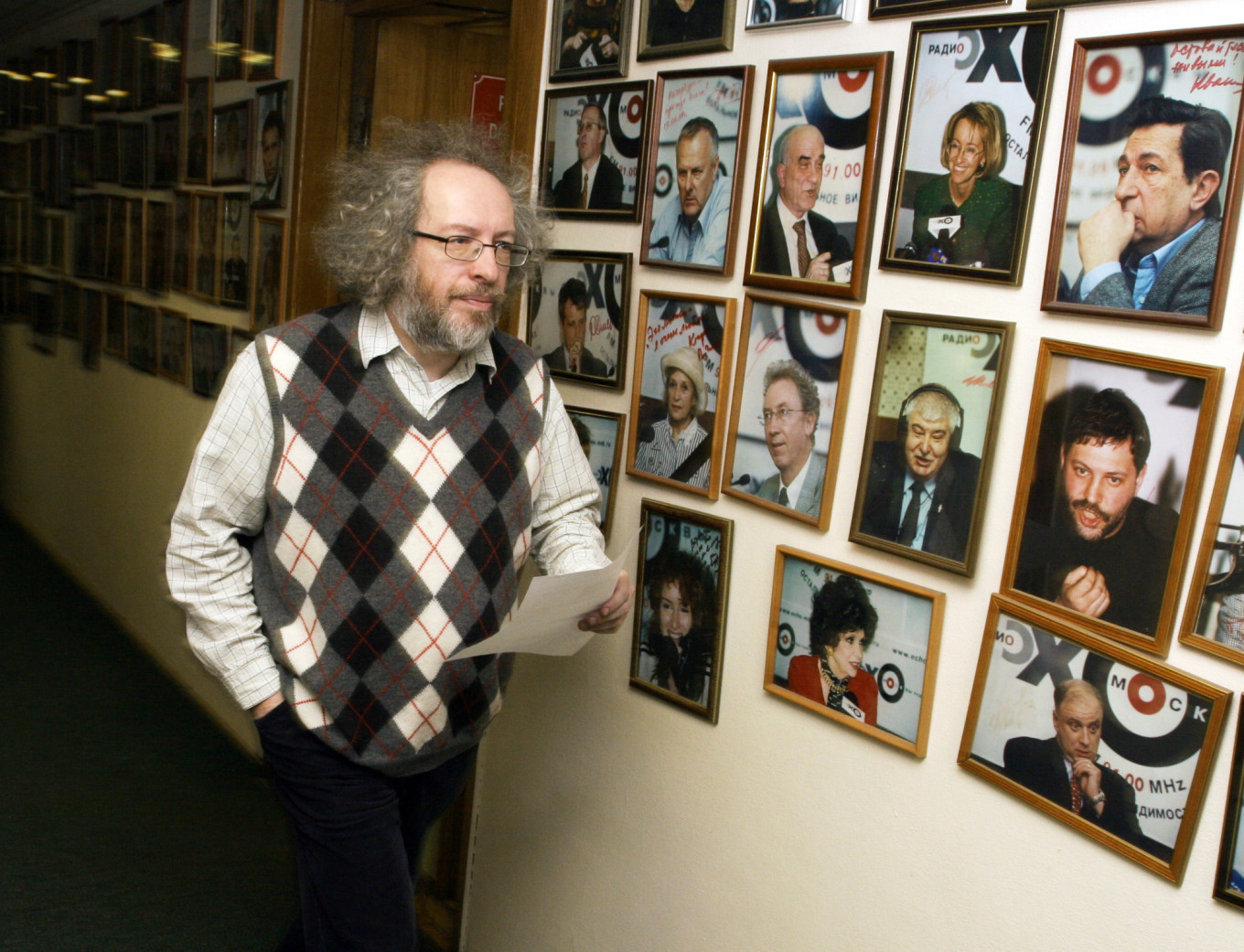One hundred and thirty-eight days before his country’s full-scale invasion of Ukraine, Dmitry Muratov of Novaya Gazeta was accepting the Nobel Peace Prize in Oslo. In his speech, he quoted the proverb “The dogs bark but the caravan goes on,” usually understood to mean that the sound and fury of journalism have no real impact on the state. Muratov argued things were the other way round — that the “caravan” could not move at all if not for the barking of the “dogs.”
“We are the antidote to tyranny,” he declared.
Askold Kurov’s bold new documentary is framed around this double-edged proverb. Co-directed by “Anonymous 1,” who remains in Russia, the film charts the decline of press freedom before, during and after the invasion.
Structured as a countdown to war, the film follows human rights organizations and news outlets as they deal with their new labels of “foreign agent” and decide whether to leave their country. Featured are Memorial, Ekho Moskvy, Dozhd and Novaya Gazeta, which shared its newsroom home videos with the director.
Memorial, the group recording Soviet-era human rights abuses, is the first to fall. Ninety-one days before the invasion, Memorial was declared a “foreign agent,” the film warns, in white letters on a black screen. Against footage of marching prison guards, we hear the government’s justification: “Why should we be ashamed of our supposedly dark past?”
In the post-film Q&A, Kurov explains that the footage of Memorial was gathered before he decided on the “countdown” structure as part of a separate project. When the war started, he realized he had unknowingly filmed the “beginning of the end,” and was able to splice the material together with the new footage from within the newsrooms. It’s an extraordinary undertaking, and no less effective for being an accident.
“ROSSIYA BOMBIT UKRAINU” — Russia is bombing Ukraine. This was Novaya Gazeta’s front page on Feb. 25, 2022, putting Muratov and his team at risk of jail. Everything quickly accelerates. In the film’s second act, Kurov’s intertitles – one day after the war, two days, three — capture the frantic timeline of the invasion’s first week, in which a year seemed to pass.
Here, the unusual level of access to Novaya Gazeta pays off, as we see the editorial team react to the ever-changing legislation from regulator Roskomnadzor on a day-by-day basis — and almost on a word-by-word basis. Arguments between the journalists bring the dilemma to life — should they stay and use euphemisms like “special military operation” for war, or shut down, cutting off many Russians from their message? Muratov — who eventually took his paper abroad — rules against compromise: “There is such a thing as self-respect.”
The fly-on-the-wall style of the footage offers some funny moments in an otherwise sober film. Editor Sergei Sokolov, chewing an unlit cigarette, scowls his way through a Word document heavily redacted in red: “LEAVE f***ing, DELETE war.” The Ekho Moskvy radio station’s frequency is cut off: “If you can hear us, you are our audience!”

Kurov doesn’t let us forget the Ukrainian victims of the war, making use of user-generated footage of the invasion. The near-obsessive level of detail and focus on the Russian media could come across as self-pitying — but it doesn’t. The message that abstract words and propaganda can and have killed people is never lost.
And while the clips of journalists taking down portraits from the office walls, saying goodbye on-air and mourning a now-vanished Moscow are sentimental, Kurov’s camera points outwards, not inwards. Portraits of Western and Russian politicians alike — from Bill Clinton and Condoleeza Rice to Mikhail Gorbachev and Alexei Navalny — adorn the Ekho Moskvy studio walls, a reminder of what the world lost when Russia closed its doors.
The final scenes show Muratov auctioning his Nobel prize for $1 million to benefit Ukrainian children displaced by the war.
Like the best films about journalists — “All the President’s Men” comes to mind — “Of Caravan and the Dogs” focuses on the procedure to capture a very specific point in history and leaves you feeling the story could not have been told any other way.
The film also resonates as a parable of the decline of freedom in any country. The canary-in-the-coalmine story of Memorial is particularly chilling to watch as copycat legislation against foreign-funded NGOs is rolled out in Georgia, a case of prevention versus cure if ever there was one.
Cynics might disagree with Muratov that the “dogs” of journalism can stop the caravan — two and a half years later, Russia’s war shows no sign of ending. But he and others like him still get up every morning and bark.
… we have a small favor to ask. As you may have heard, The Moscow Times, an independent news source for over 30 years, has been unjustly branded as a “foreign agent” by the Russian government. This blatant attempt to silence our voice is a direct assault on the integrity of journalism and the values we hold dear.
We, the journalists of The Moscow Times, refuse to be silenced. Our commitment to providing accurate and unbiased reporting on Russia remains unshaken. But we need your help to continue our critical mission.
Your support, no matter how small, makes a world of difference. If you can, please support us monthly starting from just $2. It’s quick to set up, and you can be confident that you’re making a significant impact every month by supporting open, independent journalism. Thank you.
Once
Monthly
Annual
Continue

Not ready to support today?
Remind me later.
×
Remind me next month
Thank you! Your reminder is set.





